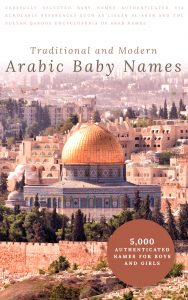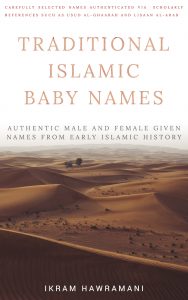| Short meaning of Khair | Noble, Admirable and Praiseworthy See below for detailed meaning |
|---|---|
| How to pronounce Khair | KHartoum + prAY + R Each block is a syllable. Thick black border indicates stress/emphasis. Other pronunciations are acceptable. |
| Arabic Spelling (How to write Khair in Arabic) | خَيْرٌ |
| Quranic Nature (Learn more...) | Directly Mentioned |
| Alternate spellings of Khair | Khayr Khere Khaire Caire Cair Keire Keir Kere Ker Kayre Kayr Keyre Keyr Kaire Kheire All of the above spellings are acceptable for this name. You may also create your own spelling. |
| Quranic Root (Learn more...) | Kh-Y-R All Quranic baby names derived from Kh-Y-R: |
Meaning of Khair
The name Khair is one of the most important words in the Quran and is used 70 times in the Quran with various meanings depending on the context:
- Goodness
- Welfare
- Benefit
- Virtue
- Better (comparative: better than…)
- Best, finest
- Wealth or material good
The 70 count mentioned above does not include its common use as a comparative/superlative noun to mean “better than” or “best”.
According to Lane’s Arabic-English Lexicon, Khair refers to anything that all people desire, such as intelligence, equality, excellence, and whatever else that is profitable or beneficial.1
According to the scholar Al-Rāghib al-Isfahānī’s al-Mufradāt fī Gharīb al-Qurʾān:
Al-Khair> (Good): It is that which is desired by all—such as reason, justice, virtue, and anything beneficial. Its opposite is evil (ash-sharr).
It has been said that good (khair) is of two types:
Absolute good – that which is desirable in all situations and by everyone. For example, the Prophet (peace be upon him) described Paradise as such when he said:
‘There is no [true] good in any good after which comes the Fire, and no [true] evil in any evil after which comes Paradise.’Relative (conditioned) good and evil – meaning something may be good for one person but evil for another. For instance, wealth may be good for Zayd but evil for ʿAmr.2
Quranic Examples
And establish prayer and give zakah, and whatever good you put forward for yourselves you will find it with Allah. Indeed Allah, of what you do, is Seeing. (2:110)
Further verses:
O you who believe, bow and prostrate and worship your Lord and do good, that you may be successful (22:77)
Whatever verse We abrogate or cause to be forgotten, We bring forth one better than it or similar to it. Do you not know that Allah is over all things competent? (2:106)
Indeed, Safa and Marwah are among the symbols of Allah. So whoever performs Hajj to the House or performs ʿUmrah—there is no blame upon him for walking between them. And whoever does good voluntarily—then indeed, Allah is Appreciative and All-Knowing. (2:158)
They ask you what they should spend. Say, ‘Whatever you spend of good/wealth is for parents, relatives, orphans, the needy, and the traveler. And whatever good you do—indeed, Allah is All-Knowing of it. (2:215)
He gives wisdom to whom He wills, and whoever is given wisdom has certainly been given much good. But none will remember except those of understanding. (2:269)
Indeed mankind, to his Lord, is ungrateful. And indeed, he is to that a witness. And indeed he is, in love of wealth, intense. But does he not know that when the contents of the graves are scattered and that within the breasts is obtained, indeed, their Lord with them, that Day, is [fully] Acquainted. (Quran 100:6-11)
Indeed, those who believe and do righteous deeds – those are the best of creatures. Their reward with their Lord is gardens of perpetual residence beneath which rivers flow, wherein they will abide forever, Allah being pleased with them and they with Him. That is for whoever has feared his Lord. (Quran 98:7-8)
Footnotes
- Arabic-English Lexicon by Edward William Lane, entry for خير.
- Al-Rāghib al-Isfahānī’s al-Mufradāt fī Gharīb al-Qurʾān, entry for خير.



